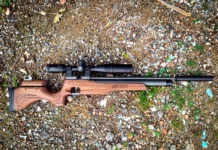Duck Hunting isn’t just something you do; it tends to become a part of who you are. Duck hunters have their own culture and unique language.
I’ll never forget hunting with some buddies, it was my first time hunting with this group, and I was a new hunter. A group of Scaup came in, and the season for them wasn’t open yet (California early season). I pulled my gun up and waited for my friend to give me the call to shoot them, but he never did. I asked him why we didn’t shoot at those ducks, and he said – They’re blueys. I didn’t know what that meant, so I asked him what type of duck that was, and he explained to me that they call Scaup – blueys.
That’s when I realized I had much more to learn than I had thought. The different names for ducks that day didn’t stop, and my eyes had been opened that these guys were speaking a different language – Duck Slang.
The slang between duck hunters can vary between regions and areas you hunt, but there is definitely a common thread that goes through most areas.
Whether you are a new duck hunter just starting out on this addiction we call waterfowl hunting or an experienced duck hunter who uses many of these words regularly (especially during season) – get ready to learn some Duck Hunting Slang.
Types of Ducks & Geese
Duck Hunters have slang terms for many different types of ducks and geese, and it often varies based on your location. Some terms transcend a majority of the duck hunter dialects. Duck Hunting Lingo like:
- Drake Mallard: Park Duck, Green Bean, Green Head, Greenie.
- Northern Shoveler: Spoonie, Hollywood, Smiling Mallard, Boot Lip
- American Wigeon: Cotton Top
- Northern Pintail: Sprig, Chocolate Top
- Gadwall: Gray Duck
- Wood Duck: Woodie
- Bufflehead: Buffie
- Common Merganser: Lawn Dart
- Hooded Merganser: Hoodie
- Canadian Goose: Honker
- Snow Goose: Sky Carp
- Specklebelly (White-fronted) Goose: Speck, Tar Belly
- Scaup: Bluey, Bluebill
- Hen Mallard: Suzy
- American Coot: – Trash Duck
- Sea Gull: – Portuguese Snow Goose, Steven
It’s truly amazing to think about how we use so many different slang terms to label the different types of waterfowl.
Duck Hunting Lingo
It’s not just the different types of ducks that have nicknames. There are countless made-up names for various elements of duck hunting that you should know about. Check out a small list below:
- Sky Buster: Someone who shoots at ducks that are too high.
- Honey Hole: The perfect place to hunt ducks. Always successful.
- Refuge Rat: Someone who hunts a public refuge religiously
- Pass Shooting: Shooting at ducks as they pass, rather than while they are landing.
- Cupped up: When ducks lock their wings and begin to lower in elevation.
- Spot Burner: The guy on the internet or in person who shares someone else’s honey hole.
- Flock Shooting: Shooting at a flock of ducks instead of focusing on a single duck.
- Water Swat: Shooting a duck that is on the water.
- Spinner/Mojo: A Spinning wing decoy.
- Deek: A decoy
- Spread: The entirety of a hunter’s decoys as they are set out.
- The X: Where the birds want to be
- Cut Em: The saying someone uses to signal other hunters it’s time to shoot
- Bling: Band
Duck Hunters definitely have their own language, and it even seems like there are different dialects to their lingo. If you have a word or phrase that isn’t on the list – go ahead and share it with us, we’d love to hear it!








































